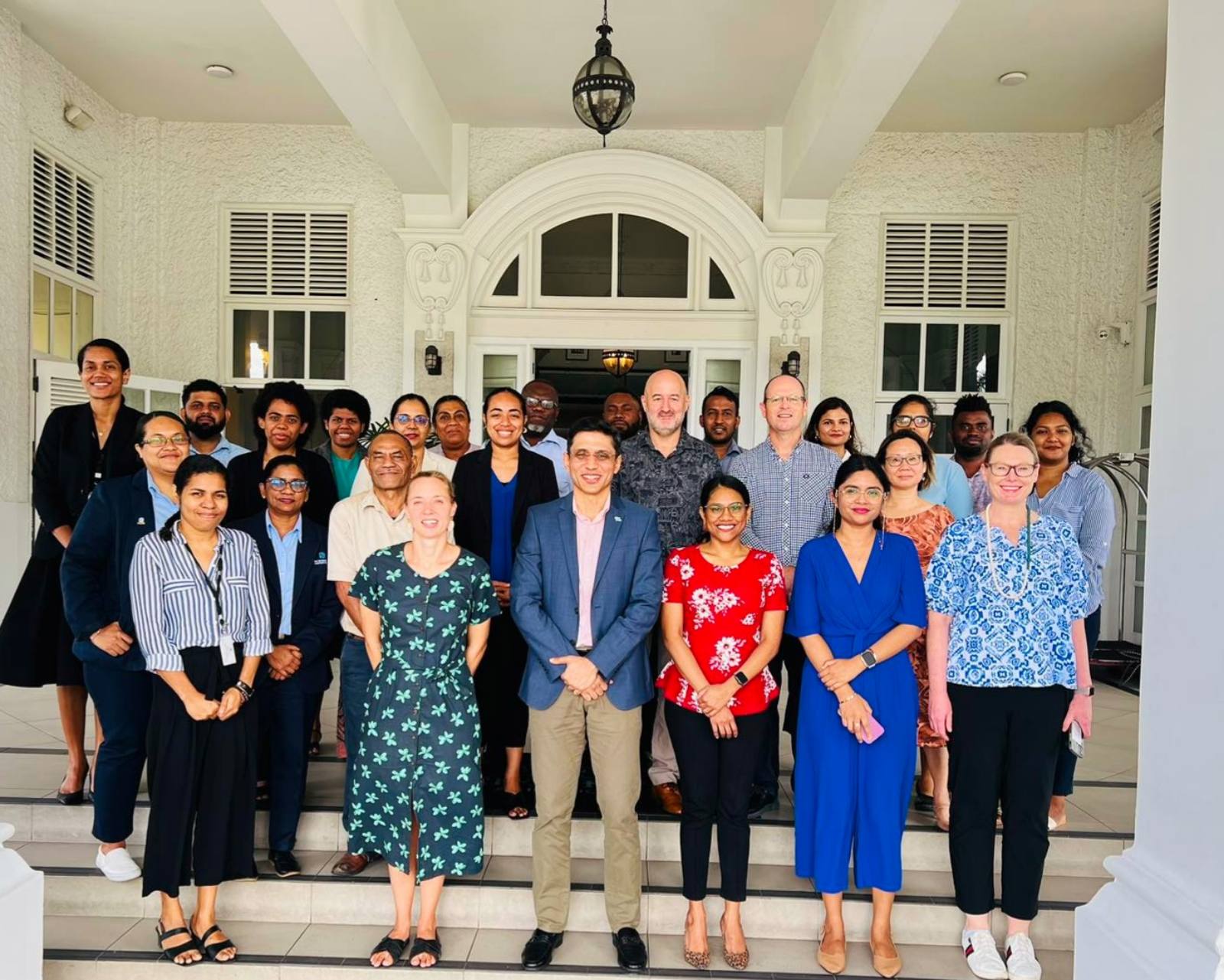Ms Susannah Hodson, First Secretary for the Australian High Commission in Fiji,
Senior Officials,
Ladies and Gentlemen,
Bula Vinaka and Good morning to you all.
It is a pleasure to welcome you all to this Pacific Regional Workshop on Trade in Services. I extend my warmest greetings to our workshop facilitators and to all the participants of the Pacific.
I have just returned from the Indo Pacific Economic Framework (IPEF) 5th Rounds of Negotiations in Thailand, where Fiji is negotiating a unique trade arrangement with 14 larger economies, including the US.
I am also feeling somewhat jet-lagged so I will keep my remarks short.
Ladies and Gentlemen,
I want to draw upon the experience in IPEF on some of the lessons we need to keep in mind when dealing with international, regional or bilateral negotiations in Services.
Trade in Services is an integral part of any trade relations or arrangement. It has taken centre stage since most economies, especially here in the Pacific, are moving towards services as they develop.
And this is not just traditional services like tourism and transport but more-so with modern technology, cross-border services like the BPO Industry, and in the Pacific, movement of natural persons.
As I have said, IPEF is a unique arrangement. It has no market access provisions. Yet services are front and centre in the Trade Pillar of IPEF, when it comes to the Chapters on Services Domestic Regulation (SDR), Good Regulatory Practice (GRP), Digital Economy, Environment, Labour, Agriculture, Trade Facilitation and even Competition Policy.
Whilst in terms of market access we are not directly negotiating the two vital concepts of non-discrimination, which are the “most favoured nation” and “national treatment”, we are discussing in the IPEF other vital concepts of trade in services.
These include international best practices in terms of regulation; making, setting and authorisation aspects of regulations, by government or competent agencies. These have become increasingly important as our trading partners are demanding equal access and transparency in our regulations.
The questions that are asked now when we set services related policies are; Are our regulations fair? Have they incorporated views and comments from all stakeholders? Are our services related rules and regulations accessible? Have they been published on a medium which everyone can access? including our trading partners? And lastly, have we undertaken a feasibility or regulatory impact assessment before drafting regulations related to services?
This also calls into question our Right to Regulate and how much of these aspects we would like to tie ourselves to, in a trade arrangement, especially if we are small and developing economies.
Ladies and Gentlemen,
These questions may seem logical and simple but when you have small administrations — such as in the Pacific — resources and capacity to undertake these tasks are a challenge.
[To demonstrate our capacity constraints, the Fiji delegation to IPEF numbered 16 and included 6 agencies, the largest I have experienced, but we were still outnumbered 10 to 1 by most delegations with the larger ones having as much as 200 in their delegation. Our trade division has 4 professional staff, whereas in DFAT trade staff numbers at least are in hundreds if not 1,000s.]
Ladies and Gentlemen,
Having set some context, I take this opportunity to express my sincere gratitude to the Department of Foreign Affairs and Trade (DFAT) and the Australian Government for their support in organizing this crucial capacity-building workshop for Pacific officials.
Senior officials, Ladies and Gentlemen,
Trade in services is the cornerstone of our economic development and contributes significantly to the growth and stability of our region.
In fact, Trade in Services is growing faster than Trade in Goods and are actually driving value beyond what national accounts measure. Developing economies have witnessed even faster rates of growth.
For Fiji, and our broader Pacific Region, the services sector presents a wealth of opportunities. Its dynamic nature and transformative impact empower our people, nurtures innovation, and ensures sustainable prosperity.
Thus, this workshop holds immense significance as it aims to shed light on the complexities and nuances of trade in services. It will equip us with the knowledge and tools needed to navigate the international trade landscape more effectively.
Senior officials, Ladies and Gentlemen,
Understanding the General Agreement on Trade in Services (GATS) and the intricacies of Free Trade Agreement Services Chapters is fundamental to fostering an enabling environment for our service providers and enhancing our global competitiveness.
I also understand that another vital component that will be discussed in the workshop is the Scheduling of services commitments. This is vital in trade negotiations
Senior officials, Ladies and Gentlemen,
This workshop will guide us towards aligning our policies and offerings with international standards, attracting investments, and nurturing partnerships.
The success of this workshop will resonate far beyond the scope of our discussions. It will help shape the policies we implement, the agreements we negotiate, and the growth we collectively witness.
Ladies and Gentlemen,
In closing, I encourage your active engagement and open exchange of ideas, throughout the course of this workshop.
It is my hope this workshop serves as a stepping stone towards a future brimming with economic prosperity and shared success.
I wish you well in this 3-day workshop.
Vinaka vakalevu. Thank you very much.



